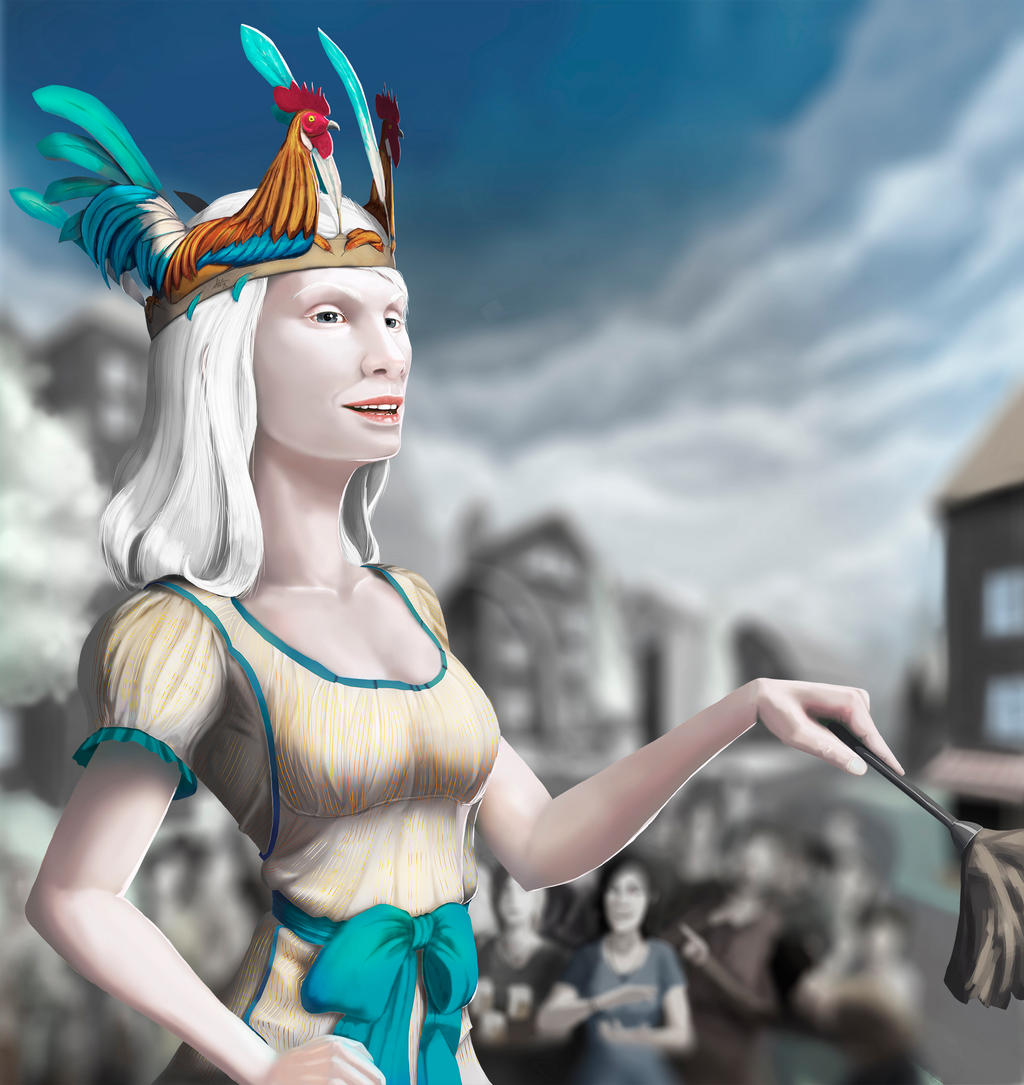Read the previous entry in the series here.
Read the next entry in the series here.
The next chapter, “The Rooster Crown,” starts with a brief description of a Mountain Kindgom game before moving into Fitz and Kettle’s return from their sortie. Kettricken notes that the Fool seems to be improving, and Fitz considers both the presence of Regal’s coterie and his own actions. He very nearly falls back into a Skill-reverie, but Kettle calls him out of it before he can slip in, but after the night passes, he is pulled into the Skill Regal plies through his coterie.

The Rooster Crown by AreyMA on DeviantArt, here, used for commentary
Fitz is understandably shaken by the vision, and Kettricken and Kettle make to ease and redirect him. The party proceeds uneasily, but doggedly, and the Fool notes that his present illness seems to be a natural occurrence for his kind. He also elaborates on that kind to Fitz as they proceed, as well as laying out more of the scope of his prophetic powers and his purpose in plying them.
The next morning, the party sets out with more vigor. Nighteyes offers to have the Fool accompany him and Fitz on the hunt; the Fool accepts, surprising Fitz. As they proceed, they come to a place where once a village stood; Fitz and the Fool are both swept into the place’s history and visions. The rest of the party is able to pull them out of it, and Kettle berates them both, but the Fool exults in renewed confidence, and they press ahead with something very much like joy.
Later, that joy is somewhat blunted when Kettricken points out Starling’s affections and evident jealousy to Fitz. Fitz denies the allegations made against him, and Kettricken notes some attraction to him before leaving him alone.
The action in the present chapter was easier for me to follow on this re-reading, which pleases me; I had been worried about my ability to follow a narrative anymore. The discussion of the Fool’s upbringing and abilities, too, seemed to make sense to me, and it seems to me, too, that there is something of a parallel between what the White Prophets are described as doing and the work of humanistic study.
The chapter describes the brand of prophecy the Fool practices as being more of a backward look than a forward one. That is, there are omens and portents and visions, but it is only after events have come to pass that those prophecies can be understood for their full meaning. (Connecting back to earlier comments about the series and its evocation of Asimov’s Foundation novels, I am reminded of the equations displayed by the Prime Radiant in the later-in-milieu books; psychohistory can predict to some degree, but events as they happen occasion adjustments to and recalibrations of the mathematics.) Similarly, the remarks those who study the humanities make, using the works of human minds and hands to help understand the human conditions (and, yes, there’s a reason I’m using the plural), can only be understood fully in retrospect–and even then, as with the Fool’s visions, the interpretations change as new information comes to light.
Of course, that’s the way it’s supposed to be.
[…] Read the previous entry in the series here. Read the next entry in the series here. […]
LikeLike
[…] the previous entry in the series here. Read the next entry in the series […]
LikeLike
[…] came up again…The Rooster Crown by AreyMA on DeviantArt, here, used for […]
LikeLike
[…] and he swoons; when he comes to, he leaves the marred skin behind, although he takes the piece of the Rooster Crown he […]
LikeLike
[…] The Fool explicates some of what he has learned of the carving–Realder’s Dragon–including parallels between those involved, and he notes his purpose for the Rooster Crown–a thing to be given in exchange for the […]
LikeLike